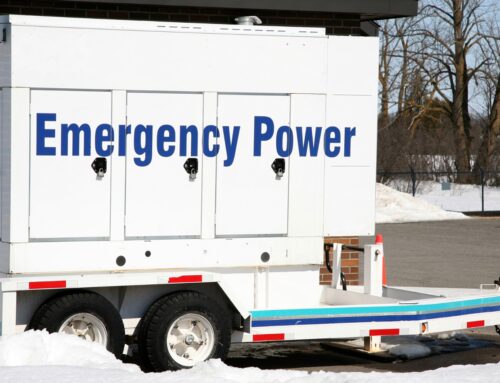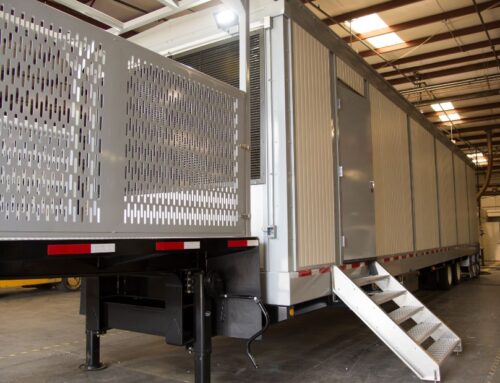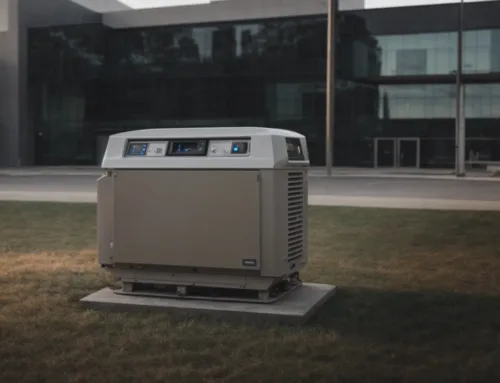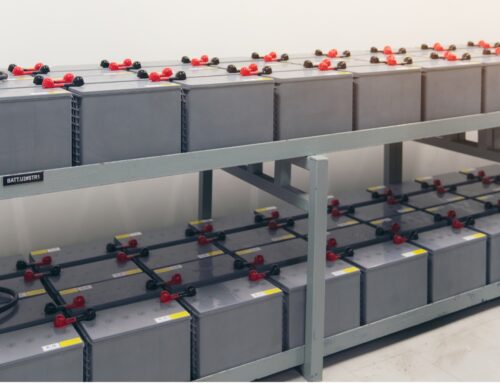Uninterrupted Power: A Must-Have for Modern Businesses — In today’s fast-paced business world, uninterrupted power is crucial for maintaining operations and ensuring customer satisfaction. From VIP clients in Kansas to self-storage facilities across the nation, businesses of all sizes rely on consistent electricity to keep their doors open and systems running. The price of power interruptions can be steep, leading to lost revenue, damaged equipment, and compromised data. Keep reading to discover how modern businesses can safeguard against power outages and implement robust backup solutions to stay ahead of the competition.
- Why Modern Businesses Can't Afford Power Interruptions
- Essential Backup Power Solutions for Every Business
- The Rise of Renewable Energy in Ensuring Continuous Operations
- How Technology Fosters Resilience Against Power Failures
- Implementing a Disaster Recovery Plan That Includes Power Redundancy
- Conclusion
Why Modern Businesses Can’t Afford Power Interruptions

Power interruptions pose a significant threat to modern businesses, especially in industries relying on continuous operations. Companies dealing with waste management, such as those providing dumpster rentals in Indianapolis or portable toilet services, face unique challenges when power outages occur. Even luxury restroom trailers, often used at upscale events, require a stable power supply to maintain their high-end amenities. The consequences of power interruptions extend beyond immediate operational disruptions, affecting a company’s bottom line and reputation.
The High Cost of Downtime for Businesses
Power interruptions can lead to substantial financial losses for businesses, particularly those relying on continuous operations. Companies offering equipment rental services, such as flush toilets and restroom trailers, face significant revenue losses when power outages prevent them from meeting customer demands.
Downtime not only impacts immediate sales but can also damage a company’s reputation and customer relationships. Businesses that fail to provide reliable services due to power interruptions risk losing clients to competitors who can ensure uninterrupted operations, potentially causing long-term financial consequences.
Impact on Customer Trust and Company Reputation
Power interruptions can severely damage customer trust and a company’s reputation, especially for businesses providing essential services. In Missouri, contractors relying on heavy equipment and trailers to complete projects face significant challenges when power outages disrupt their operations. Clients expect reliable service, and frequent interruptions can lead to dissatisfaction and negative reviews.
Companies that fail to address power-related issues risk losing their competitive edge in the market. For instance, a contractor unable to complete projects on time due to power interruptions may lose future contracts to more reliable competitors. This ripple effect can have long-lasting consequences on a business’s reputation and growth prospects.
- Decreased customer satisfaction
- Loss of repeat business
- Negative word-of-mouth referrals
- Reduced market share
- Diminished brand value
Power outages threaten business continuity and profitability. Let’s explore the backup power solutions that can keep your operations running smoothly.
Essential Backup Power Solutions for Every Business
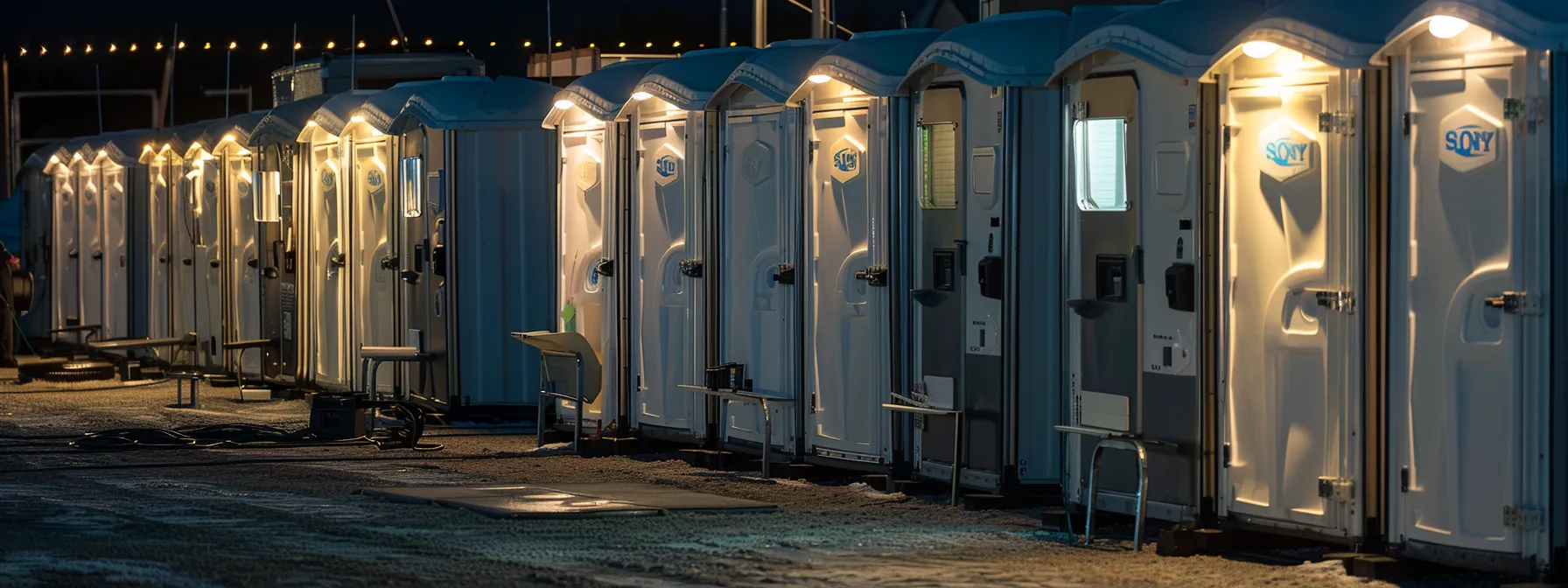
In today’s fast-paced business environment, maintaining uninterrupted power supply is crucial for companies across various sectors, including those offering services like hand washing stations, moving and storage solutions, and restroom facilities. To safeguard operations against power interruptions, businesses must implement robust backup power solutions.
Two key components of an effective power continuity strategy are Uninterruptible Power Supplies (UPS) and generators. These power management services ensure that essential equipment, such as bathroom fixtures and portable restrooms, remain functional during outages, allowing companies to maintain their services and protect their reputation.
Choosing the Right UPS (Uninterruptible Power Supply)
Selecting the appropriate Uninterruptible Power Supply (UPS) is crucial for businesses in construction, sanitation, and restroom services. Companies operating in Atlanta and other urban areas must consider factors such as power capacity, runtime, and compatibility with essential equipment like spot coolers and portable restrooms when choosing a UPS system.
A well-chosen UPS ensures continuous operation of critical systems during power outages, protecting sensitive electronic equipment and maintaining essential services. For businesses providing sanitation solutions and restroom facilities, a reliable UPS safeguards against service interruptions, preserving customer satisfaction and operational efficiency.
The Role of Generators in Long-Term Power Backup Plans
Generators play a crucial role in long-term power backup plans for businesses, especially those providing essential services like backup power rentals in Dallas. These powerful tools ensure continuous operation during extended outages, maintaining customer service standards and preventing revenue loss. By incorporating generators into their backup strategy, companies can keep vital equipment running, from sinks to air conditioning units, ensuring uninterrupted service delivery.
Selecting the right generator requires careful consideration of power requirements, fuel efficiency, and maintenance needs. Businesses must assess their critical loads, including tools and restroom facilities, to determine the appropriate generator size and capacity. A well-planned generator setup not only protects against power interruptions but also demonstrates a commitment to reliability and customer satisfaction.
Businesses today face a critical choice: adapt or risk disruption. Renewable energy offers a sustainable path forward, transforming backup power strategies while ensuring uninterrupted operations.
The Rise of Renewable Energy in Ensuring Continuous Operations

Renewable energy sources have emerged as game-changers in the quest for uninterrupted power supply, offering businesses innovative solutions to combat outages. Companies across various sectors, from moving services to porta potty rentals in New Jersey, are increasingly turning to solar panels and wind energy to ensure continuous operations. These sustainable alternatives not only provide reliable backup power but also help businesses reduce their carbon footprint and operational costs. By harnessing the power of the sun and wind, companies can keep essential equipment like pumps and water systems running smoothly, even during grid failures.
Solar Panels and Their Contribution to Uninterrupted Power Supply
Solar panels have revolutionized power continuity for businesses, offering a reliable and sustainable solution to combat outages. Companies in Kansas and beyond, including those providing portable restrooms and air conditioning services, now leverage solar energy to ensure uninterrupted operations. These systems not only provide backup power during grid failures but also reduce overall energy costs and carbon footprint.
The integration of solar panels with existing power systems creates a robust energy infrastructure capable of withstanding various disruptions. Businesses operating spot coolers and portable toilets benefit from this technology, maintaining essential services even during extended power outages. Solar energy’s versatility and scalability make it an ideal choice for companies of all sizes, from small local operators to large-scale enterprises:
Wind Energy as a Reliable Backup Power Source for Businesses
Wind energy has emerged as a reliable backup power source for businesses, offering a sustainable solution to combat power interruptions. Companies in Washington and other states have begun incorporating wind turbines into their power strategies, ensuring continuous operation of essential equipment like portable toilets and water tanks. This renewable energy source provides a consistent power supply, reducing downtime and maintaining service quality during grid failures.
The versatility of wind energy makes it an ideal choice for businesses operating in various sectors, including those providing portable sanitation solutions. By harnessing wind power, companies can maintain critical operations, answer customer FAQs promptly, and uphold their reputation for reliability. The adoption of wind energy as a backup power source demonstrates a commitment to sustainability and operational excellence:
- Reduced dependency on grid power
- Lower long-term energy costs
- Improved environmental footprint
- Enhanced resilience against power outages
- Potential for energy independence
Renewable energy revolutionizes power reliability, but it’s only part of the solution. Cutting-edge technology takes resilience to the next level, safeguarding operations against unexpected outages.
How Technology Fosters Resilience Against Power Failures

Advanced technologies play a crucial role in fortifying businesses against power failures, offering innovative solutions that extend beyond traditional backup systems. From smart grid technologies enhancing power stability to IoT devices predicting outages, these advancements are transforming how companies manage their energy needs. In Seattle, where heat waves can strain the power grid, businesses are leveraging these technologies to maintain operations.
Account managers use sophisticated systems to monitor energy consumption across various zip codes, ensuring optimal performance even when faced with potential outages. These smart solutions not only keep the doors open but also provide valuable insights into energy usage patterns, allowing businesses to adapt and thrive in an increasingly unpredictable power landscape.
Smart Grid Technologies and Their Impact on Power Stability
Smart grid technologies revolutionize power stability for businesses, including those offering portable power supply rentals in Denver. These advanced systems optimize energy distribution, reducing the likelihood of outages and ensuring uninterrupted service for customers relying on portable toilets and heat pumps.
By integrating real-time data and predictive analytics, smart grids enable companies to anticipate and mitigate potential power issues before they impact operations. This proactive approach benefits businesses renting equipment, allowing them to maintain consistent service levels and protect their reputation in competitive markets.
Devices That Help Manage Energy Use and Predict Outages
Various devices have revolutionized energy management and outage prediction for businesses across Kansas City and beyond. These smart technologies monitor power consumption at every level, from individual desks to entire buildings, providing real-time data that enables companies to optimize their energy use. By integrating with asset management systems, certain devices help businesses track and maintain critical equipment, ensuring optimal performance and reducing the risk of unexpected failures.
Advanced sensors can detect subtle changes in power quality and consumption patterns, alerting businesses to potential issues before they escalate into full-blown outages. This predictive capability allows companies to take proactive measures, such as adjusting workloads or activating backup systems, to maintain continuous operations. From monitoring engine performance in backup generators to analyzing weather patterns that might affect power supply, technology has become an invaluable tool in building resilience against power interruptions.
Resilience alone isn’t enough to shield businesses from power failures. A robust disaster recovery plan with power redundancy forms the backbone of true operational continuity.
Implementing a Disaster Recovery Plan That Includes Power Redundancy
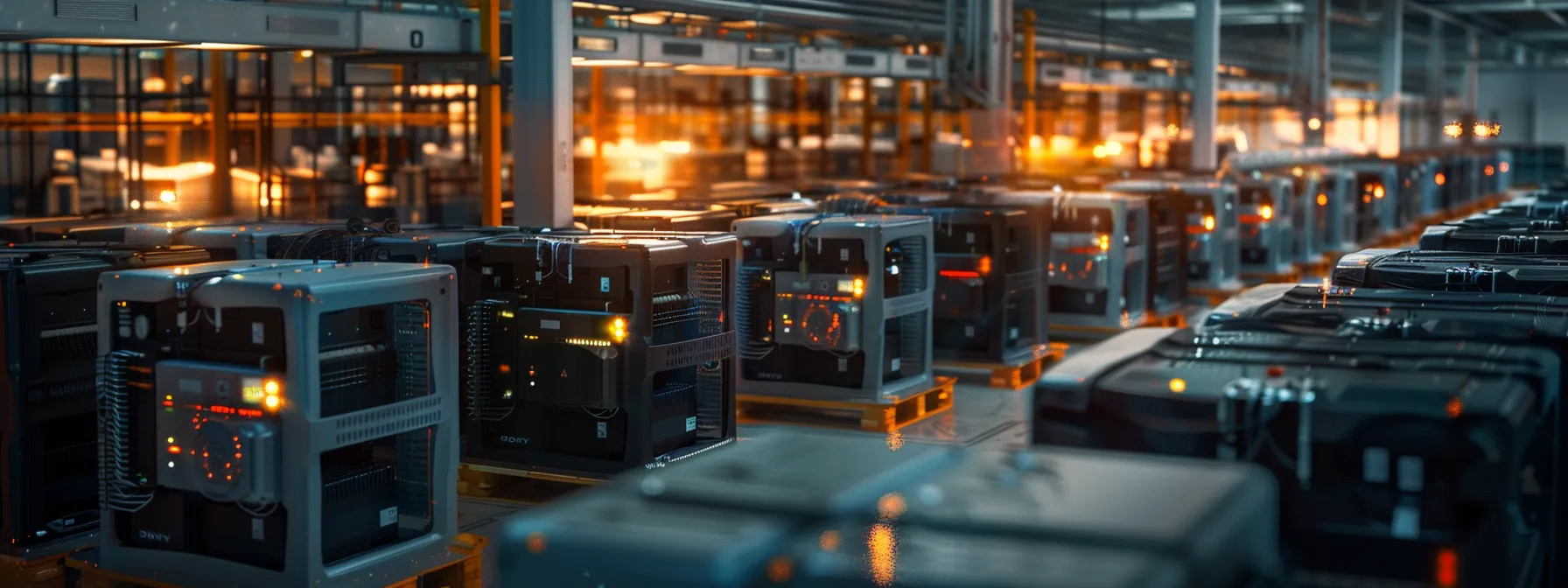
Power redundancy forms a critical component of a comprehensive disaster recovery plan for modern businesses. Companies must safeguard their operations against interruptions that can disrupt essential services, from internet connectivity to data storage. This approach extends beyond traditional sectors, impacting industries such as education and cargo transportation, where continuous access to information and power is paramount. By implementing robust power redundancy strategies, businesses can ensure the uninterrupted flow of data and maintain operational continuity, even in the face of unforeseen disruptions.
Assessing Your Business’s Power Needs and Vulnerabilities
Assessing a business’s power needs and vulnerabilities requires a comprehensive analysis of critical operations across various sectors, including transport, maintenance, vehicle, aerospace, and manufacturing industries. Companies must evaluate their energy consumption patterns, identify essential equipment, and determine the potential impact of power interruptions on productivity and safety.
This assessment process involves examining the power requirements of specialized machinery, data centers, and communication systems vital to daily operations. By understanding their unique vulnerabilities, businesses can develop targeted strategies to enhance power redundancy and minimize the risk of disruptions in their production lines, maintenance schedules, and supply chain operations.
Conclusion
Uninterrupted power has become a critical necessity for modern businesses across various industries, from waste management to aerospace. Power interruptions can lead to significant financial losses, damage customer trust, and tarnish a company’s reputation. To mitigate these risks, businesses must implement robust backup power solutions, including UPS systems, generators, and renewable energy sources like solar panels and wind turbines.
Advanced technologies such as smart grids can further enhance power stability and help businesses predict and manage potential outages, ensuring continuous operations and maintaining a competitive edge in today’s fast-paced business environment. Critical power products are essential in this regard.
Air Power Consultants is your go-to partner for securing top-notch UPS (Uninterruptible Power Supply) rental solutions in the United States, designed to keep your business operational through any emergency. Our inventory spans stand-alone and UPS trailer mounted rental in Chicago, ensuring a perfect fit for any requirement your business might face, from severe weather conditions to power outages, and even for dependable power sources for outdoor projects. This includes prompt delivery and pickup across the Chicago metropolitan area and beyond with adaptable rental agreements.

We recognize the critical importance of having a reliable uninterrupted power supply rental in Chicago, particularly for businesses that provide essential services. That’s why Air Power Consultants offers UPS rental in Chicago. We can help you choose which UPS system rental in Chicago fits your business, our team of experts can provide the information you need to make an informed decision. Making sure your business has the uninterruptible power it needs is our top priority.
For personalized consultation and to explore our UPS rental solutions in Chicago and more, get in touch with us at Air Power Consultants. You can reach us at 913-894-0044 or via email: info@apcikc.com.


